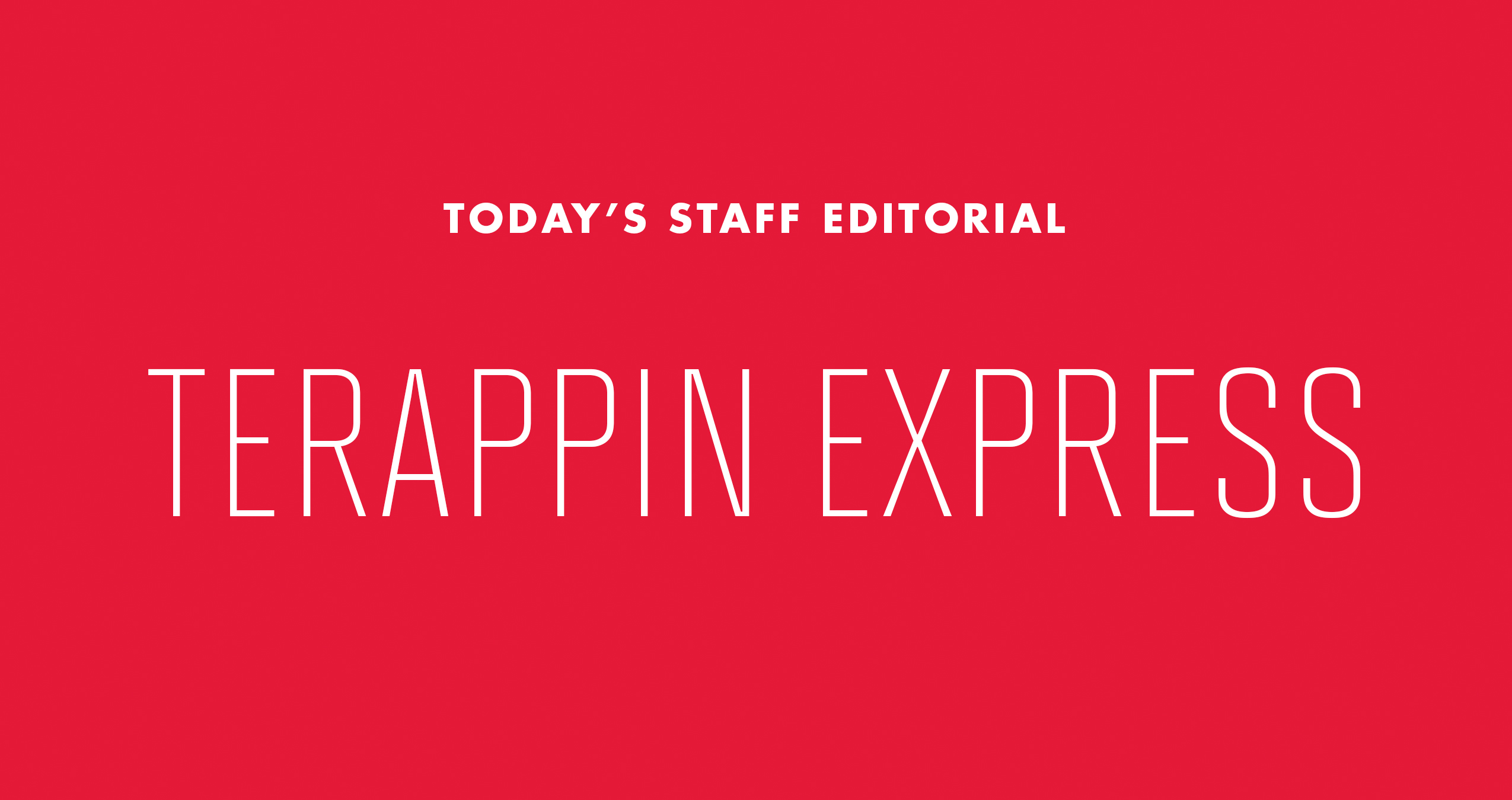A freshman-to-be follows a tour guide on a sunny day, excited to be alive, out of high school and roaming the place she’ll spend the next four years. She strains her ears to catch more details about a program the tour guide is discussing near the front of the pack.
“With our ID card partnership, you will be able to eat and shop at more than 20 local vendors with only their [insert cutesy name of ID card here],” the tour guide shouts.
Excellent, thinks the new freshman, I can’t wait to go here.
It’s a scene University of Maryland students have likely been a part of before, but it’s a scene playing out at another university, maybe in Michigan, Indiana or Pennsylvania. This university lags behind in offering students off-campus dining options they can pay for conveniently, a vexing problem the Student Government Association hopes to remedy by 2018.
The members of this editorial board can remember touring other schools in the Big Ten and beyond, where key selling points were flexible dining plans and reloadable ID cards that could be used to purchase food and essentials in the nearby college towns.
The SGA’s plan, championed by student affairs vice president AJ Pruitt, hopes to court local businesses and ridesharing giant Uber to turn this university’s useful but largely limited Terrapin Express program into a more robust payment option that benefits both the university and the city.
This editorial board thinks it’s about time.
Penn State’s LionCash+ permits students to make purchases with their university ID cards at hundreds of vendors throughout Pennsylvania, sometimes at a discounted rate. At Michigan State University, students can opt into a DineOn-the-Go plan with flexibility for off-campus spending. Indiana University’s CrimsonCard gives students access to dozens of stores, restaurants and eateries.
These plans offer students flexibility, as well as a safer and more reasonable alternative to carrying large amounts of cash or opening a credit card account. They introduce students to the local economy and small businesses which might not register with a student population but for a university partnership.
And while one Diamondback Facebook commenter noted the plan might allow her go to Noodles & Co. three times a day, other universities’ programs include yoga studios, tutoring services, printing and paper supply stores and supermarkets.
Expanding into College Park is a natural progression of the Terrapin Express program, which is already active at libraries, in Stamp Student Union’s food court and at concession stands. Allowing students to use their university ID beyond campus would be a boon to the local economy and a relief when diner pizza just isn’t cutting it.



